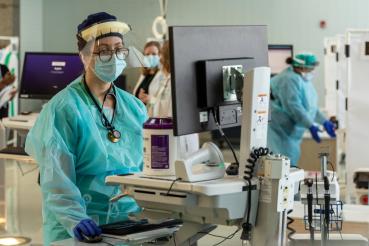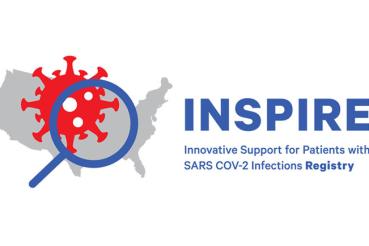When the COVID-19 pandemic disrupted life all over the world, Steven Gitelis, MD, knew the way he cared for his patients would be affected. One case came immediately to mind: An orthopedic oncologist at Rush University Medical Center, Gitelis was scheduled to operate on a 16-year-old patient with a complicated osteosarcoma, a type of bone cancer that typically affects adolescents and young adults.
As hospitals across the United States mobilized to treat COVID-19 patients, most surgical cases were paused to conserve beds, supplies and staff. This response included Rush, and Gitelis’ osteosarcoma case.
However, Gitelis’ patient needed surgery within a tight, 10-day window. “With some types of cancers, you can continue radiation therapy or chemotherapy to maintain a response,” Gitelis says. “We could not do that in this case: It was an emergent situation.”
'Collaboration must take precedence'
Like most hospitals in the United States, Rush adheres to guidelines published by the American College of Surgeons, the Centers for Medicare and Medicaid Services, and the Society for Surgical Oncology to determine which procedures can be postponed and which cannot. Postponing this surgery, the guidelines made clear, would jeopardize the patient’s limb and life.
Immediately, Gitelis called long-time colleague John Sarwark, MD, head of the Division of Orthopedic Surgery and Sports Medicine at Ann & Robert H. Lurie Children’s Hospital of Chicago, to ask if the surgery could be scheduled there. Less than 24 hours later, he was granted emergency permission to operate at Lurie. The surgery was a success, and the patient now is recovering.
“We were ready to treat pediatric patients so Rush could use its resources for adults with COVID-19,” says Sarwark, who also is professor of orthopedic surgery at Northwestern University Feinberg School of Medicine. “In these challenging times, collaboration must take precedence.”
“Dr. Sarwark and his surgical team were unbelievably helpful,” Gitelis says. “They welcomed me — provided everything I needed for a complicated cancer operation. I can’t say enough about our work together.”
Gitelis hopes this joining of available forces in the face of need will serve as a continuing example, coronavirus or not. “We’re all in this together,” he says. “We’re all one health care family, and we all want to do the best for our patients and help each other out.”
Gitelis is the Rush Medical College Endowed Professor of Orthopedic Oncology, the director of musculoskeletal oncology at Rush University Cancer Center and director of the Section of Orthopedic Oncology.




